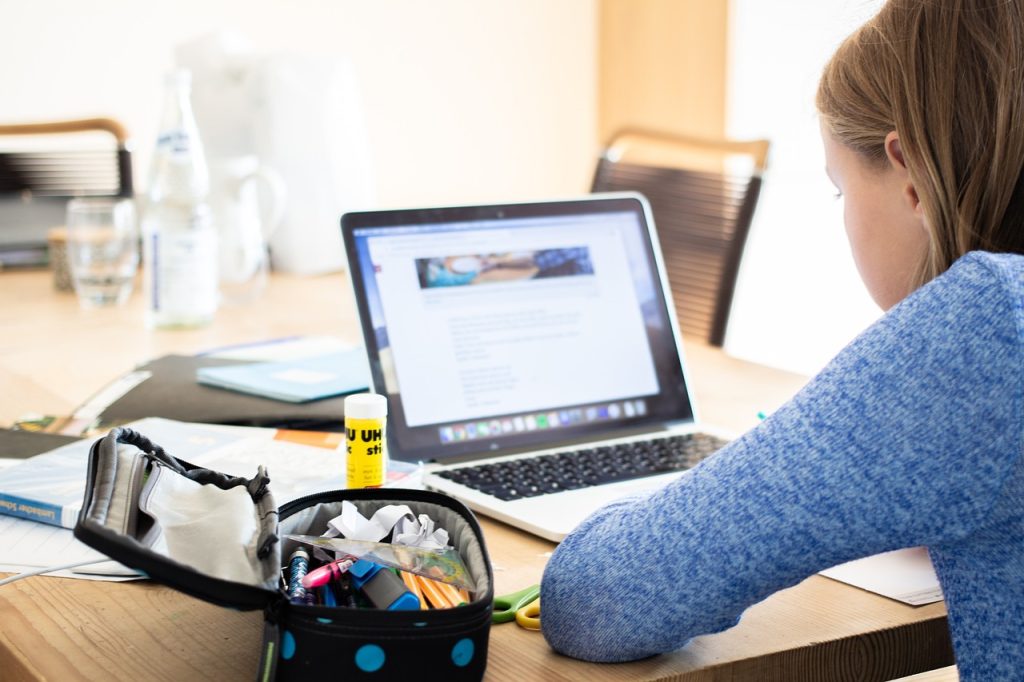Student Computer Security: Protecting Your Device on Campus
In an era where education is increasingly reliant on technology, students carry a treasure trove of information on their devices, from personal data to academic work. However, the bustling nature of campus life and the ubiquity of digital devices create ample opportunities for security breaches. It’s essential for students to be vigilant and proactive in protecting their computers and the sensitive data they contain. This article provides practical advice on how to secure your device and guard against potential threats, ensuring that your academic journey is both safe and productive.
Physical Security: Safeguarding Your Device in Public Spaces
The open and collaborative environment of a campus can often leave personal devices vulnerable to theft or unauthorized access.
Lock It Up
Always be mindful of your surroundings and never leave your device unattended in public areas. When you need to step away, even just for a moment, use a physical lock to secure your student computer to a desk or a heavy piece of furniture. These locks are similar to bike locks but designed for computers, with a metal cable and a combination or key lock.
Secure Storage
Take advantage of lockers or other secure storage solutions provided by your school, especially if you’re carrying devices between classes or during extracurricular activities. It’s also wise to invest in a sturdy, lockable bag or backpack to store your devices while you’re on the move.

Digital Defense: Equipping Your Computer with Security Software
Beyond physical threats, the digital realm presents its own set of challenges, from malware to phishing attacks.
Antivirus and Anti-Malware
Ensure that your device is equipped with reliable antivirus and anti-malware software. This software acts as the first line of defense against malicious programs that can compromise your student computer‘s functionality or steal your personal information. Keep your security software up to date, as new malware variants are constantly emerging.
Firewalls and Network Security
Activate the firewall on your device to monitor incoming and outgoing network traffic and block suspicious activity. When connecting to the internet on campus, use secure, encrypted Wi-Fi networks that require a login, and avoid public Wi-Fi for sensitive activities. If you must use a public network, consider using a virtual private network (VPN) to encrypt your connection and protect your data from prying eyes.

Data Protection: Keeping Your Academic Work and Personal Information Safe
Your digital footprint on campus includes a wealth of personal information and academic work that needs to be protected from potential loss or exposure.
Regular Backups
Regularly back up important documents, research, and assignments. Utilize cloud services with strong encryption protocols, or keep an external hard drive that you can store separately from your computer. Having multiple copies ensures that you can recover your work in the event of a device failure or theft.
Password Management
Use strong, unique passwords for your computer login and online accounts. Consider using a reputable password manager to generate and store complex passwords. Enable multi-factor authentication (MFA) wherever possible to add an extra layer of security, ensuring that even if a password is compromised, unauthorized users cannot gain access to your accounts.

Education and Awareness: Staying Informed About Campus Security Policies and Threats
The best security measures can be undermined by a lack of awareness. Stay informed about potential risks and the policies your campus enforces to combat them.
Security Policies and Resources
Familiarize yourself with your institution’s IT security policies, and take advantage of any resources or services they offer, such as security workshops or free antivirus software. The IT department can be a valuable ally in maintaining the security of your devices.
Stay Informed on Cyber Threats
Educate yourself about the latest cyber threats and scams targeting students. Phishing emails, for example, can appear to be from legitimate sources like your university but are designed to steal login credentials or personal information. Knowing what to look for and staying cautious about unsolicited emails and links will help you avoid falling victim to these scams.

Smart Computing Habits: Cultivating Behavior That Protects Your Data
Ensuring the security of your device also involves developing smart computing habits that minimize exposure to risks and enhance your overall digital hygiene.
Safe Browsing and Download Practices
Be cautious about the websites you visit and the files you download. Stick to reputable sources, especially when downloading software or accessing academic articles. Avoid clicking on ads or pop-up windows that could lead to malicious sites. When working on shared computers on campus, such as in labs or libraries, always log out of personal accounts and never save passwords on these devices.
Email Vigilance
Be skeptical of emails requesting personal information or urging you to act quickly, especially if they contain links or attachments. Verify the sender’s identity by checking their email address carefully for subtle misspellings or domain changes. Reach out directly to the purported sender using known contact information if you’re unsure about the legitimacy of an email. Additionally, regularly review your email settings and filters to help detect and block spam or phishing attempts.

Collaboration and Communication: The Role of Community in Cybersecurity
An often overlooked aspect of computer security is the role that collaboration and communication with peers and faculty play in reinforcing a secure computing environment.
Peer-to-Peer Education
Share knowledge with your peers about best practices in student computer security. If you learn of a new scam or potential threat, inform your friends and classmates. Cybersecurity is strengthened when the community is aware and vigilant. Student organizations can also host events or workshops focused on digital security, creating spaces for shared learning and community support.
Open Dialogue with Faculty
Maintain an open dialogue with your professors and faculty members regarding the protection of academic work. Discuss the best ways to submit assignments securely, how to safeguard research data, and the expectations for data privacy in your academic discipline. Faculty members can also provide insights into discipline-specific software or data storage solutions that meet both security and academic requirements.
Navigating campus life while keeping your student computer and personal data secure doesn’t have to be daunting. By implementing robust physical security measures, equipping your device with the necessary digital defense tools, diligently protecting your data, and educating yourself about potential threats, you can create a solid security foundation. Remember, the goal is to make your academic experience not only enriching but also secure. The responsibility for student computer security on campus is a shared one, and by taking these steps, you’re contributing to a safer digital environment for yourself and your peers.